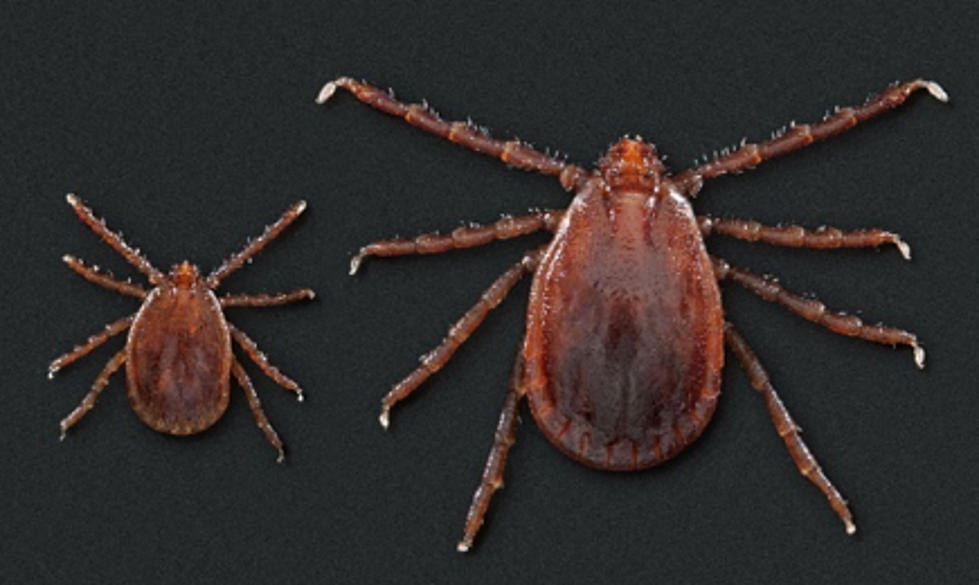
Deadly New Tick Species Found In Massachusetts
A new species of ticks that have been found in Massachusetts is responsible for the death of three cows in the state of Ohio according to officials.
Asian longhorned ticks first arrived in the western hemisphere in 2017, but now their presence is causing alarms. That's because three cows in Ohio died after being bit tens of thousands of times by the ticks. Researchers said they can reproduce quickly, hide in tall grass and survive harsh conditions. -abc11
The species has been found in 19 states including Massachusetts.
Asian Longhorned Tick
A friend of mine just last night showed me a fresh tick bite to his right forearm, along with a bright red circle of irritation around it. This was a stark reminder to hunters this year that even with the arrival of the colder weather, ticks are still active.
As far as Massachusetts goes, Berkshire County has reported findings.
Information from the CDC on the Asian Longhorned Tick
- Not normally found in the Western Hemisphere, these ticks were reported for the first time in the United States in 2017.
- Asian longhorned ticks have been found on pets, livestock, wildlife, and people.
- The female ticks can lay eggs and reproduce without mating.
- Thousands of ticks may be found at a time in grass or shrubs or on an animal.
- Researchers are looking for these ticks to find out where they live and if they prefer wooded or more open areas.
- As of April 13, 2023, longhorned ticks have been found in Arkansas, Connecticut, Delaware, Georgia, Indiana, Kentucky, Maryland, Massachusetts, Missouri, New Jersey, New York, North Carolina, Ohio, Pennsylvania, Rhode Island, South Carolina, Tennessee, Virginia, and West Virginia.
- Compared with well-known native ticks (such as the blacklegged tick, lone star tick and American dog tick), the Asian longhorned tick appears to be less attracted to human skin.
- In other countries, germs spread via bites from these ticks can make people and animals seriously ill.
- With ongoing testing of ticks collected in the United States, it is likely that some ticks will be found to contain germs that can be harmful to people. However, we do not yet know if and how often these ticks are able to pass these germs along to people and make them ill. (See sidebar.)
- One recent experimental study found that this tick is not likely to contribute to the spread of Lyme disease bacteria in the United States.
- Another laboratory study found that this tick has the ability to carry and spread the bacteria that causes Rocky Mountain spotted fever (Rickettsia rickettsii). The germs that cause Rocky Mountain spotted fever have not yet been found in these ticks in nature.
These 50 US Cities are Crawling with Bed Bugs
Gallery Credit: Scott Clow
More From WBEC FM









